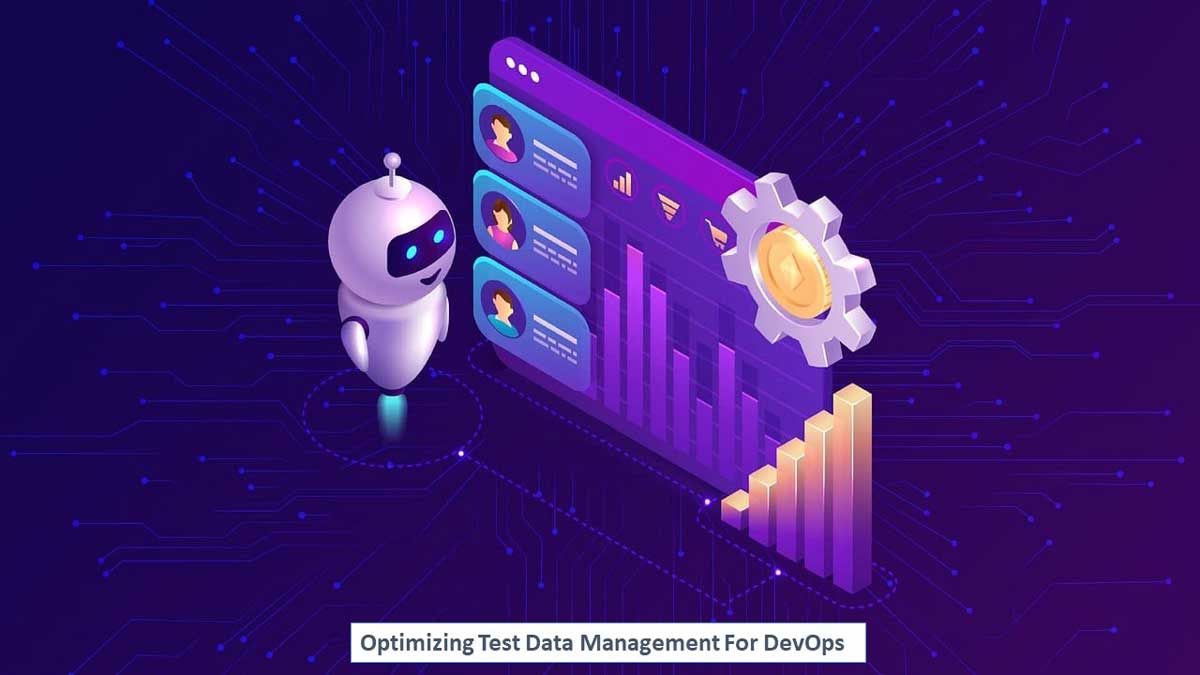Optimizing Test Data Management
Struggling with test data in your DevOps endeavors? We get it – we’ve faced that challenge too. This article dives into the crucial role of Test Data Management (TDM) in optimizing software delivery. We’ll walk you through practical strategies, helping you streamline your TDM process and enhance overall testing efficiency.

Say goodbye to test data headaches as we equip you with actionable insights and down-to-earth techniques. It’s time to transform the way you manage test data and elevate your DevOps game. So let’s begin!
What is Test Data Management?
Test Data Management (TDM) involves effectively generating and handling realistic data to facilitate testing within a DevOps setting. TDM plays a crucial part in the world of DevOps and cloud initiatives. It encompasses the creation of data sets resembling an organization’s actual data alongside the streamlined tools and processes required for compliant software testing data provisioning.
The significance of TDM stems from its capacity to prepare accurate and lifelike test data consistently. This quality enhances the testing procedure’s precision, dependability, and pertinence. Additionally, TDM is equally essential in upholding a resilient test automation framework.
By grasping the distinct responsibilities within TDM and implementing best practices, we can harness its potential to enhance software delivery performance across an entire organization effectively.
Comprehensive Solution to Large-Scale Test Data Management
Managing test data might seem overwhelming, especially in big projects with lots of data. But don’t worry! Some solutions can simplify things and make handling large amounts of test data much easier.
Take IBM InfoSphere Optim Test Data Management, for example. This tool is made to handle nonproduction data efficiently. It’s like a helper that automates and optimizes many test data tasks. It has features to help different teams work together smoothly so everyone knows what’s happening. This teamwork makes testing work well.
With this tool, we can provide the right test data whenever our testing team needs it. This makes testing better and helps our whole DevOps process run more smoothly. It doesn’t just help with getting data ready, though. It also keeps our testing databases in good shape for ongoing testing, which is super important in DevOps.
Benefits and Challenges of Test Data Management
While test data management brings advantages like enhanced reliability and better testing efficiency, it also presents challenges that must be tackled to ensure successful implementation. Let’s look into these benefits and challenges in depth:
Increased reliability
Improving test data management within DevOps significantly boosts reliability. Test Data Management (TDM) is like the beating heart of software testing. It ensures top-notch quality and covers a wide range of data, ensuring every part of the system gets thoroughly tested in different situations.
This careful checking process reduces mistakes and gives us strong confidence in how well the final product will perform. But remember, if the test data isn’t reliable, it can mess up isolating tests and slow down the testing process. So, accuracy is a big deal in testing.
Additionally, TDM helps us make data that looks and acts like the real thing in production. This is important for creating the best possible testing conditions and boosting reliability at every software-making step.
Improved testing efficiency
Improving testing efficiency is a crucial aspect of test data management in DevOps. By optimizing how we handle and utilize test data, we can streamline the testing process and make it more efficient.
One way to achieve this is by reusing test data across different testing scenarios, which helps save time and resources. Additionally, segmenting test data allows us to focus on specific areas of an application, making our tests more targeted and effective.
With a robust test data management strategy, organizations can improve their overall testing efficiency and ensure the success of their DevOps projects.
Common challenges
Tackling the challenges of Test Data Management plays a vital role in optimizing DevOps testing. Here are some common hurdles to keep in mind:
- Lack of Proper Training: Many organizations face difficulty due to lacking training and expertise in testing technologies. This can make effective test data management a challenging task.
- Data Quality Concerns: Poor data quality can get in the way of effective testing. When the test data isn’t right, it doesn’t help overcome testing challenges and can lead to inaccurate results.
- Shortage of Skilled Resources: Not having enough experienced folks with testing know-how can slow down test data management and impact DevOps.
- Delays in Implementation: Rolling out Test Data Management might mean dealing with costs and delays. This can affect how smoothly DevOps testing runs.
- Juggling Multiple Environments: Handling test data across different environments, especially in fast-changing DevOps setups, can be a tough job that consumes a lot of time.
- Working with Existing Tools: Making Test Data Management work with the tools and tech you already use in DevOps isn’t always a walk in the park. It can get pretty complex and need extra effort.
- Data Privacy and Security: With everyone focused on keeping data private and secure, organizations must ensure test data is managed, protected, and follows the rules.
- Handling Big Data: As applications get bigger, handling loads of test data gets even more complicated. Generating and taking care of enough test data for thorough testing can be challenging.
Strategies for Optimizing Test Data Management in DevOps
To optimize test data management in DevOps, organizations should focus on self-service for everyone and maintaining healthy data.
Self-service for everyone
In optimizing test data management in DevOps, implementing self-service for everyone involved in the process is a crucial strategy. This means providing developers, testers, and other stakeholders easy access and control over test data throughout the software development life cycle.
By enabling self-service capabilities, teams can efficiently retrieve the required test data without relying on limited resources or delays from IT departments. This promotes greater productivity and agility while ensuring that bottlenecks or dependencies do not hinder testing efforts.
Additionally, self-service empowers individuals to quickly select relevant and up-to-date test data, contributing to improved testing efficiency and overall quality assurance outcomes.
Maintaining healthy data
Tackling the challenges of Test Data Management plays a vital role in optimizing DevOps testing. Here are some common hurdles to keep in mind:
- Lack of Proper Training: Many organizations face difficulty due to a lack of training and expertise in testing technologies. This can make effective test data management a challenging task.
- Data Quality Concerns: Poor data quality can get in the way of effective testing. When the test data isn’t right, it doesn’t help overcome testing challenges and can lead to inaccurate results.
- Shortage of Skilled Resources: Not having enough experienced folks with testing know-how can slow down test data management and impact DevOps.
- Delays in Implementation: Rolling out Test Data Management might mean dealing with costs and delays. This can affect how smoothly DevOps testing runs.
- Juggling Multiple Environments: Handling test data across different environments, especially in fast-changing DevOps setups, can be a tough job that consumes a lot of time.
- Working with Existing Tools: Making Test Data Management work with the tools and tech you already use in DevOps isn’t always a walk in the park. It can get pretty complex and need extra effort.
- Data Privacy and Security: With everyone focused on keeping data private and secure, organizations must ensure test data is managed, protected, and follows the rules.
- Handling Big Data: As applications get bigger, handling loads of test data gets even more complicated. Generating and taking care of enough test data for thorough testing can be challenging.
Conclusion
In conclusion, optimizing test data management stands as a pivotal factor in achieving successful DevOps practices. Organizations can elevate testing efficiency, amplify reliability, and ultimately enhance software delivery by implementing effective strategies and leveraging appropriate tools.
With continuous testing and a focus on data governance and security, businesses can ensure they have the right test data at the right time to support their development process.
Author Bio
Daniel Jackson
Community Manager
Daniel is a community manager for NI (formerly National Instruments), where they create the tools needed for companies to Engineer Ambitiously™. His current interests are at the intersection of software engineering and DevOps. Outside of work, he is a marathon runner and is working on his first novel.
